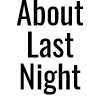- Almanac: Logan Pearsall Smith on professionalism

“The test of a vocation is the love of the drudgery it involves.” Logan Pearsall Smith, Afterthoughts Continue reading Almanac: Logan Pearsall Smith on professionalism at... [read more]
What Would Freud Make of the Toilet-Paper Panic?
Unlike hand sanitizer or test kits, toilet tissue is not subject to increased need in the coronavirus crisis. Nevertheless, shoppers continue to express a siege mentality.
Freud and the T.P. panic
During the 16 months Einstein spent in Bohemia, he did nothing much. But the banality of his experience there is itself worth consideration
Bohemian Experience
From the Sator Square to anti-riddles, word games have a long and delightful history. Crosswords weren’t invented until 1913 Cross Words
Freud was a social philosopher, using a scientific guise to lend his ideas more authority. Or so argues a New Book
“In all the creative occupations, there’s no stability unless you’re a superstar of some sort.” Barbara Ehrenreich reckons with success
Liberalism after Rawls
Solace in tragic times
Small talk in a pandemic
Lessons from Camus
Pandemic journal
History and epidemics
Literature for a lockdown
Splendor of "The Simpsons"
Coronavirus and postmodernism
Library thefts
H.G. Wells and the 20th century
Audiobook snobbery
Krugman on Piketty
Unwoke cuisine
Talking to Jan Morris
Hardcovers v. paperbacks
Jewish writers
Writers' secret
Freeman Dyson, R.I.P.
Polanski affair
"Bad" English as heritage
Future of MeTooLit
Class system in jails
Trump and architecture
Relationship with books
Vagina
Doomer lit
Ancient brothels
Bohemian Einstein
A. E. Hotchner, R.I.P.
Rousseau and Twitter
Black English matters
Smashed piano
Regarding Gabriel Matzneff
Conspiracy theories
Criticizing critics
Exclamation point!
On public knitting
Why women read fiction
George Steiner, R.I.P.
Professor as conman
Mary Higgins Clark, R.I.P.
Controversy over American Dirt
To read or reread?
Venice
Carver and Bukowsky
Boycott over comma
Missing Howard Zinn
Fair for steer and painting
Book murderer
Is a lifetime too long?
Banksy and banality
Mere
Greatness of Beethoven
Plagiarism in Russia
Emporium of pirated e-books
LBGTQ fantasy novels
Reading Airbnb Magazine
Book toilets
Roger Scruton, R.I.P.
Fox News theory of art
The Real John Simon
Against cheerfulness
How to write a memoir
John Baldessari, R.I.P.
Eliot's love letters
Lipstick and resistance
Gertrude Himmelfarb, R.I.P